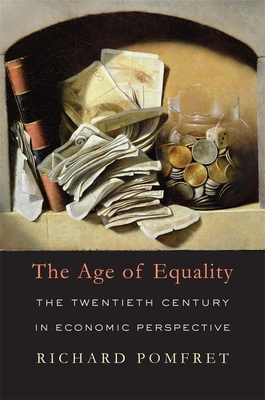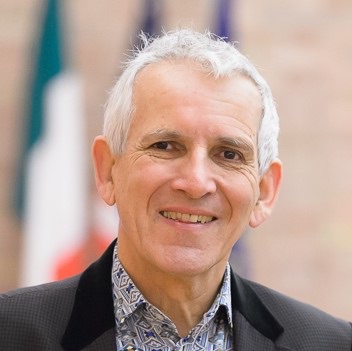

 Belknap Press
Belknap Press
The Age of Equality


Key Metrics
- Richard Pomfret
- Belknap Press
- Hardcover
- 9780674062177
- 8.63 X 5.81 X 0.96 inches
- 1.08 pounds
- Business & Economics > Economic History
- English
 Secure Transaction
Secure TransactionBook Description
In 1900 the global average life expectancy at birth was thirty-one years. By 2000 it was sixty-six. Yet, alongside unprecedented improvements in longevity and material well-being, the twentieth century also saw the rise of fascism and communism and a second world war followed by a cold war. This book tells the story of the battles between economic systems that defined the last century and created today's world.
The nineteenth century was a period of rapid economic growth characterized by relatively open markets and more personal liberty, but it also brought great inequality within and between nations. The following century offered sharp challenges to free-wheeling capitalism from both communism and fascism, whose competing visions of planned economic development attracted millions of people buffeted by the economic storms of the 1930s. The Age of Equality describes the ways in which market-oriented economies eventually overcame the threat of these visions and provided a blueprint for reform in nonmarket economies. This was achieved not through unbridled capitalism but by combining the efficiency and growth potential of markets with government policies to promote greater equality of opportunity and outcome. Following on the heels of economic reform, rapid catch-up growth in countries such as China, India, Indonesia, Brazil, and Poland helped to reduce global inequality.
At a time when inequality is on the rise in nations as disparate as the United States and Egypt, Pomfret's interpretation of how governments of market economies faced the challenges of the twentieth century is both instructive and cautionary.
Author Bio
Dr. Richard Pomfret has been Professor of Economics at the University of Adelaide since 1992. Before coming to Adelaide, he was Professor of Economics at the Johns Hopkins University School of Advanced International Studies in Washington DC, Bologna (Italy) and Nanjing (China).
He previously worked at Concordia University in Montréal and the Institut für Weltwirtschaft at the University of Kiel in Germany. He has also held visiting positions at universities in Australia, Canada, China, France, Italy and the USA, and is an honorary Fellow of the Centre for Euro-Asian Studies at the University of Reading, UK, of Monash University European Centre, of the Centre for Social and Economic Research (CASE) in Warsaw, and of the research centre ROSES-CNRS at Université-Paris I.
Richard Pomfret has acted as adviser to the Australian government and to international organizations such as the World Bank, Asian Development Bank and United Nations Development Programme. In 1993 he was seconded to the United Nations for a year, acting as adviser on macroeconomic policy to the Asian republics of the former Soviet Union. He has also worked at the Organisation for Economic Co-operation and Development in Paris on several occasions while on leave from Adelaide.
His research interests centre on economic development and international economics, and he has published over a hundred papers in these fields. He has written seventeen books, including Investing in China 1979-1989; Ten Years of the Open Door Policy (1991), The Economics of Regional Trading Arrangements (1997; paperback edition 2001), Constructing a Market Economy: Diverse Paths from Central Planning in Asia and Europe (2002),
The Central Asian Economies since Independence (2006), Regionalism in East Asia (2011),The Age of Equality: The twentieth century in economic perspective, published by Harvard University Press (2011) and Trade Facilitation, co-authored with Patricia Sourdin and published by Edward Elgar (2012). He has also written textbooks on international trade and on development economics, and edited a textbook on Australian trade policies.
Source: The University of Adelaide
Videos
No Videos
Community reviews
Write a ReviewNo Community reviews